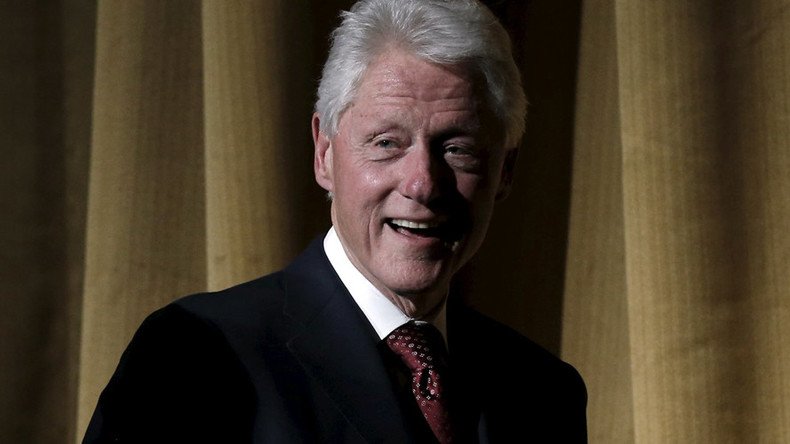Bill Clinton on Brexit: N. Ireland will ‘get whacked’ if Britain leaves EU

Northern Ireland will be dealt a serious blow if UK citizens vote for a Brexit in June, former US President Bill Clinton has said.
Speaking at an Irish-American event in New York this week, he said: “It’s Northern Ireland that will really get whacked if Britain withdrew from the European Union.
“And I hope they don’t because it’s too easy to believe that the only solution to the problems in the world is to hunker down.”
He was honored at the event with a life-time award for his role in Northern Ireland’s peace process in the mid-1990s, and is considered one of the key architects of the 1998 Good Friday Agreement.
Bill Clinton warns Northern Ireland will get ‘whacked’ by Brexit https://t.co/R6k3oIc8ydpic.twitter.com/SL28qVHJY4
— PoliticsHome (@politicshome) March 31, 2016
His intervention came after Irish Prime Minister Enda Kenny said a Brexit could inflame tensions in Northern Ireland and cause a break-down of the peace agreement.
The current US President Barack Obama angered Pro-Brexit campaigners, after it became clear he planned to use a visit to London in April to urge UK voters to remain part of the Union.
The warnings in the Brexit debate continue elsewhere, with UK think tank Open Europe, warning the country’s GDP could fall by 2.2 percent by 2030 if Britain leaves and fails to broker a deal with the bloc or retreats into protectionism.
“In a best case scenario, under which the UK manages to enter into liberal trade arrangements with the EU and the rest of the world, whilst pursuing large-scale deregulation at home, Britain could be better off by 1.6 percent of GDP in 2030,” a recent report by the think tank says.
“However, a far more realistic range is between a 0.8 percent permanent loss to GDP in 2030 and a 0.6 percent permanent gain in GDP in 2030, in scenarios where Britain mixes policy approaches.”
Has Tata Steel just handed Brexit a powerful weapon - steel tariffs, Govt support, carbon emissions all constrained by EU powers.
— alex thomson (@alextomo) March 30, 2016
Thursday saw Tory Prime Minister David Cameron accused of using Britain’s steel crisis to scaremonger UK voters into voting against a Brexit on June 23, saying EU membership is essential to the industry. It’s feared thousands of jobs are at risk after Tata Steel threatened to pull out of Britain.
Open Europe, which says it will remain neutral on the EU referendum, publishes real time analysis on what it describes as the EU’s “most pressing challenges.”
On Wednesday, co-director Raoul Ruparel weighed into the steel industry debate. He said the sector has been in decline for “years if not decades.”
“It experienced a sharp decline in output in the late 1990s and has continued to struggle since,” he said.
“However, the UK’s steel sector is not alone in facing challenges. The industry more broadly has struggled to recover since the financial crisis. This has been exacerbated by the recent slowing demand from emerging markets (China in particular) and the simultaneous increase in low cost exports from those markets.”
Ruparel said Britain's steel industry has struggled for a while to remain competitive, relative to that in other EU states.












